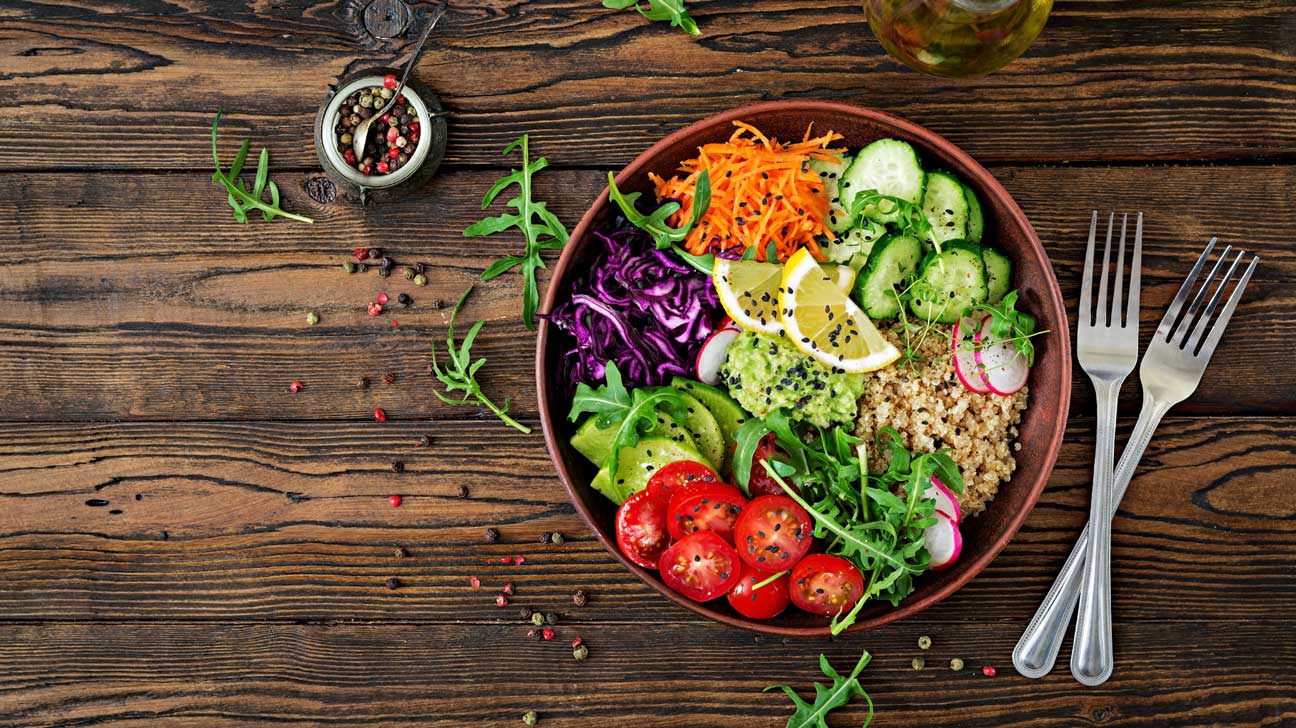
Vegetarian Diet
Description
The Vegetarian Diet is a plant-based eating pattern that excludes meat. It focuses on vegetables, fruits, grains, legumes, nuts, and seeds. Some types allow certain animal products like dairy or eggs.
✅ Types of Vegetarian Diets:
-
Lacto-Ovo Vegetarian:
-
Excludes meat and fish but includes eggs and dairy products.
-
-
Lacto Vegetarian:
-
Includes dairy but excludes eggs, meat, and fish.
-
-
Ovo Vegetarian:
-
Includes eggs but excludes dairy, meat, and fish.
-
-
Vegan:
-
Avoids all animal products completely (no eggs, dairy, honey, or gelatin).
-
🍎 Common Foods in a Vegetarian Diet:
-
A variety of fruits and vegetables.
-
Legumes: lentils, beans, chickpeas.
-
Whole grains: oats, brown rice, quinoa.
-
Nuts and seeds: almonds, walnuts, chia seeds.
-
Dairy and eggs (depending on the vegetarian type).
💡 Potential Benefits:
-
Heart health improvement: due to lower intake of saturated fats and cholesterol.
-
Lower blood pressure and blood sugar levels.
-
Weight management: vegetarian diets are often lower in calories.
-
Reduced risk of certain cancers and chronic diseases.
-
Ethical and environmental reasons: some choose it to reduce harm to animals and the environment.
⚠️ Possible Risks or Challenges:
-
Risk of deficiency in:
-
Vitamin B12
-
Iron
-
Omega-3 fatty acids
-
Calcium
-
Protein (if not well-planned)
-
-
Proper meal planning is essential to meet all nutritional needs.
3 weeks ago